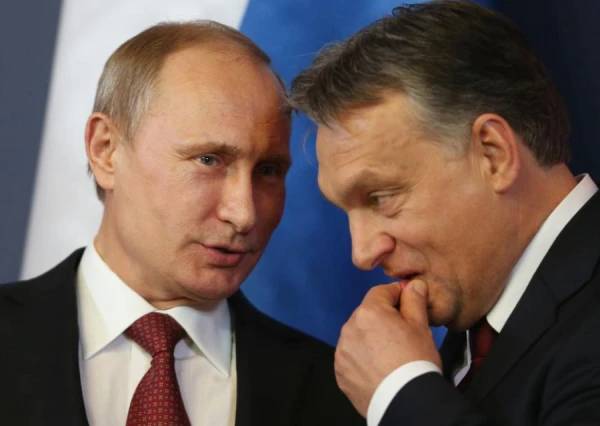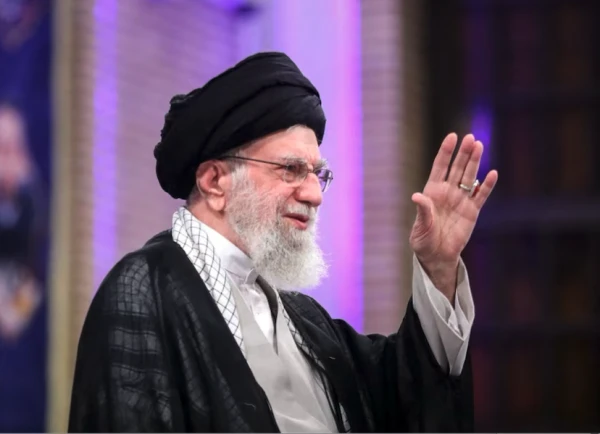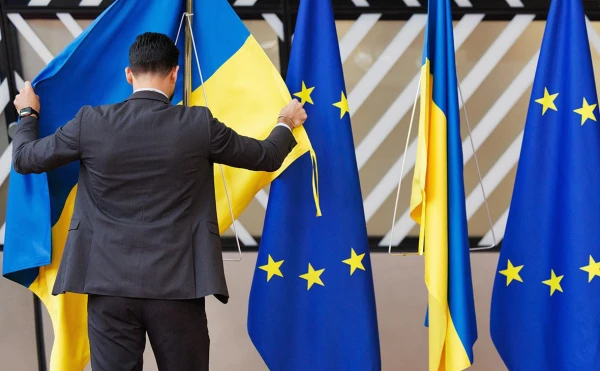
The joint investigation by the Hungarian publication Direkt36, the German Der Spiegel, the Austrian Standard, and the Belgian newspaper De Tijd reveals for the first time how Orbán's government used the Information Office for spying on EU institutions.
According to the results of an investigation conducted by the German publication SPIEGEL, the Belgian De Tijd, and the Hungarian NGO Direkt36, agents of the Hungarian foreign intelligence service appear to have been spying on EU institutions in Brussels for years and attempted to recruit European officials.
Ten years ago, amid strained relations between the government of Hungarian Prime Minister Viktor Orbán and the European Commission, the Hungarian secret service (the Information Office) sent its staff to the permanent representation of the European Union. Officially, they were supposedly dealing with financial and economic issues, but in reality, they were used for internal espionage within EU institutions. This is stated in the publication following the joint investigation.
Direkt36 reveals that an individual referred to as B., a "charming" diplomat at the Hungarian permanent representation in Brussels, attempted to recruit Hungarian citizens working in EU institutions. B. worked undercover in Brussels, officially as an employee of the Ministry of Foreign Affairs, but in reality, he was an agent of the Information Office.
From 2012 to 2018, agents of the Hungarian intelligence service practically spied openly. In 2017, B. was exposed, and along with him, the entire network of Hungarian intelligence in Brussels was compromised, the newspaper reports.
Orbán's spies employed aggressive tactics, unprecedented for an EU member state and more reminiscent of actions by Russian or Chinese regimes.
Agents approached Hungarian employees of the European Commission, asking them to share internal information. For example, meeting minutes or the content of conversations with diplomats, in exchange for financial rewards. To facilitate this, EU officials even signed documents that made them "secret collaborators" of the Hungarian secret service.
The existence of the spy network calls into question the reputation of the current Hungarian EU Commissioner Oliver Varhelyi. According to the findings of the Direkt36 investigation, during Varhelyi's tenure as Hungary's representative in Brussels (2015-2019), intelligence agents in his team, working as diplomats, attempted to recruit Hungarian officials in the European Commission.
Belgian Foreign Minister Maxime Prévot stated that this matter should not go unanswered and that Belgium will not tolerate espionage on its territory.
Former Hungarian Foreign Minister and diplomat István Szent-Iványi, in response to a question from Euronews, called it scandalous that an EU member state was engaged in espionage within EU institutions. In a conversation with Euronews, the former Hungarian diplomat did not rule out that Hungarian employees in Brussels would be perceived as potential spies.
"If Orbán's agents are spying on EU officials, it reflects how unfriendly Hungary's relations are with the EU. For over a decade, the Hungarian Prime Minister has played the role of a troublemaker among the 27 heads of state and government, driving a wedge between EU member states and promoting his illiberal policies as a model that contradicts EU values (...) As a result, Hungary has little influential positions in the EU. According to internal sources, this is why Hungarian intelligence services had to gather information and fill gaps," the Austrian newspaper Der Standard writes.
Hungary - A Complicated Partner
Within the EU, Hungary collaborates with the intelligence services of member states. Typically, allied countries refrain from spying on each other, the Austrian newspaper reminds.
However, Hungary is considered not entirely a loyal partner. Many suspect that some of the information received by Budapest ends up in Moscow. Moreover, the issue is not only about whether Budapest was more loyal to the West or Moscow, but also whether the espionage served the Hungarian state or Orbán's government.
One of the sources for Direkt36, a Hungarian official at the European Commission who declined recruitment, stated that in his opinion, espionage in Brussels is no longer aimed at promoting Hungarian interests but rather at strengthening the political and economic power of Orbán's government and its associates.
The Hungarian intelligence service in Brussels "worked extensively," meaning that "all Hungarian citizens in the European Commission who had informational potential were the focus of attention and processing." This was reported to Hungarian media by a source.
The article from Direkt36 states that intelligence services sought to obtain information related to the work of the media. According to a Direkt36 source in Brussels, a Hungarian diplomat was very interested in what reports and countermeasures the European Commission planned to undertake against Orbán's government's actions regarding independent media.
The intelligence officer working under diplomatic cover was also interested in whether Hungarians in EU bodies dealing with Hungarian media would criticize Orbán's government in their documents. Issues related to fiscal policy and the tax system were also on the intelligence services' radar.
In any case, the career of agent B. did not suffer from his exposure. In 2024, he reportedly published an article in the Hungarian military intelligence magazine about "current issues" facing security services. According to the report, B. is a lieutenant colonel and an employee of the Information Office of Hungary - the agency that consolidates intelligence data from all Hungarian intelligence services.














Leave a comment